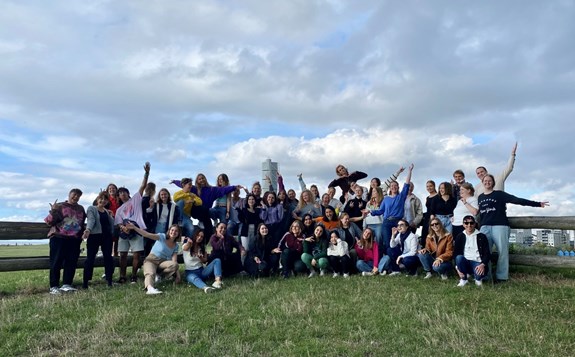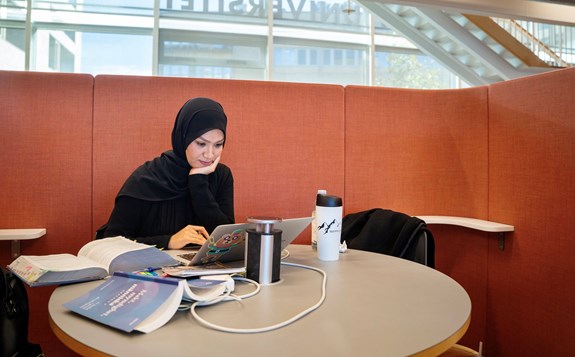We use cookies on this website. Cookies help us deliver the best experience on our website. Read about cookies.
-
- My Studies
- My Studies
-
- New student
- New student
- Malmö Smart Start Guide
- Schedules
-
- Book group rooms and find your way around Campus
- Book group rooms and find your way around Campus
- Codes of conduct
- Amphitrite
- Exams
-
- Rights and responsibilities
- Rights and responsibilities
- Your studies and AI
- Harassment and discrimination
- Scholarships for current students
On the page -
- Student Services
- Student Services
-
- Writing Centre and support
- Writing Centre and support
- Take-home exams and written assignments
- Maths workshop
- Student Health Services
- Study guidance
- Studying with a disability
- University Chaplaincy
On the page -
- Go International
- Go International
- Internship abroad
- Thesis abroad
- Certificate of International Merits
- Short-term international experiences
- Virtual International opportunities
- Contact for international opportunities
- Internationella hörnan podcast
- Get inspired
On the page -
- Jobs and internships
- Jobs and internships
-
- Innovation and entrepreneurship
- Innovation and entrepreneurship
- Leapfrogs
- Internships
- Career guidance
- Vertically integrated projects (VIP) programme
On the page
Certificate of International Merits
International Merits (CIM)
Gain international experience that you can showcase in your degree. The Certificate of International Merits (CIM) offers you a unique opportunity to strengthen your academic, personal and professional development.
Strengthen your skills with the Certificate of International Merits (CIM). The CIM offers you the opportunity to enhance your academic journey, personal growth and career prospects through meaningful intercultural experiences.
Enhance your qualifications with the CIM
Participate in international activities as part of the CIM and broaden your horizons. You will be trained to reflect on and articulate the skills you acquire. The new experiences you gain will contribute to your personal and professional development, making it easier for you to show what you can contribute when it comes to applying for a job. With CIM, you will have a portfolio of skills that you can draw on when describing your expertise to future employers.
How to register for a CIM
Send us an email and let us know that you would like to participate in the CIM. Please specify which department (or faculty) you are studying at and which semester you plan to graduate. You will be given access to a Canvas course where you can find all the information you need. CIM is currently only available to students on campus in Malmö. This is because the compulsory workshop on
Contact
cim@mau.seWhat you need to do
- Participate in three activities related to global engagement.
- You can choose activities in Sweden or abroad.
- When you have completed your activities, reflect on and present what you have learnt. The presentation can take the form of a poster, podcast, film or written text.
- When you have completed your final reflection and it has been approved you will receive a certificate. The activities will also be included in your diploma supplement (included alongside your degree certificate).
Activities
Activities should be interactive and internationally-focused. Examples include exchange studies, short courses abroad, internships abroad, online courses, the Buddy Programme, a course in intercultural communication, volunteering, etc.
Be inspired by other students who have gained a CIM.
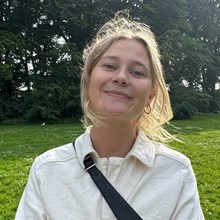
Felicia visited a school near Bilbao
My first CIM trip was a one-month placement in a school in the Basque Country, outside Bilbao in Spain. The school was strongly characterised by its mission to preserve Basque culture with teaching being conducted in Basque, a language I do not know. It was a challenging but incredibly educational...

Felicia visited a school near Bilbao
My first CIM trip was a one-month placement in a school in the Basque Country, outside Bilbao in Spain. The school was strongly characterised by its mission to preserve Basque culture with teaching being conducted in Basque, a language I do not know. It was a challenging but incredibly educational experience.
Although my task was to attend all the English-language classes in the school, this did not guarantee that the children and I could communicate. The students were between five and twelve years old and their English was limited, to say the least. The teachers' English was also limited and I realised that they found it difficult to speak with me.
Being in a classroom and school environment where I did not understand the language made me aware of how it can feel for students in Sweden who do not yet know Swedish. I had to practice reading body language, tone of voice and other non-verbal expressions. It became clear how much communication takes place beyond words, and how important it is as a teacher to be sensitive to that.
While the language barrier was an obstacle when I was in school, it was also noticeable outside. I lived with an 80 year old woman who was more than happy to speak English. We had a great time together and the month in Basque Country turned out to be something completely different from what I had first imagined. I attended everything from church services on Sundays to lunch with her friends, and travelling to different places around the region.
I also had time to reflect a lot on cultural differences and how these affect who we are. There were little things all the time that hinted at the differences between the Basque/Spanish culture and the Swedish one. For example, the school had a break every day around lunch where the students' grandparents would come and pick them up to go home and eat and take a siesta together. Every Friday, the teachers would take this opportunity to go to a nearby bar, socialise over some pinchos and even a glass of wine or beer in the sun. Imagine going from that to a school in Sweden where something like that would have led to outcry and dismissal!
At the same time, I encountered religious norms and values that are completely foreign to me. For example, my partner was visiting for a few days and was not allowed to sleep at Marian's house because we are not married. Something that is considered inappropriate for her and her faith.
My time in the Basque Country has not only given me new perspectives, it has also deepened my understanding of what it actually means to be in a new linguistic and cultural context. Above all, I have realised how important it is to have a genuine desire to meet new people and to strive to understand each other's perspectives.

They hacked their way to innovative healthcare solutions
A week-long hackathon where students from the Information Architecture and IT and Business programmes, and their equivalents at two universities in South Africa, worked together to solve a societal problem. Andy Mehmedovic and Yousuf Saboor were part of the winning team.
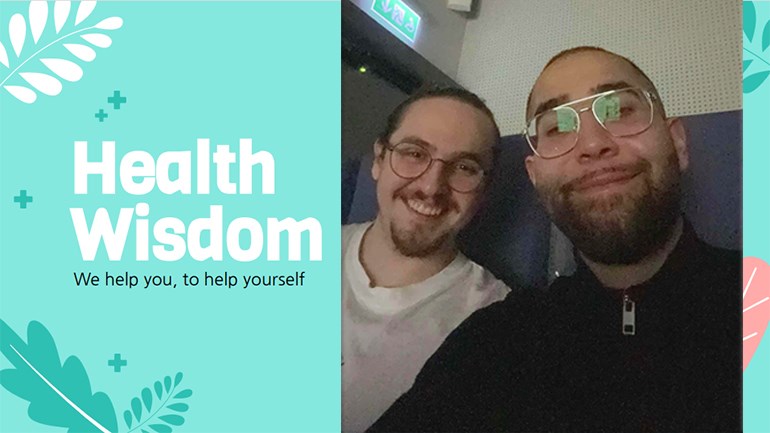
They hacked their way to innovative healthcare solutions
A week-long hackathon where students from the Information Architecture and IT and Business programmes, and their equivalents at two universities in South Africa, worked together to solve a societal problem. Andy Mehmedovic and Yousuf Saboor were part of the winning team.
13 students from Malmö University and 15 from Rhodes University and the University of Fort Hare in South Africa took part in the hackathon. Their task was to work in small groups to develop a solution for improving access to healthcare in a fictional village in rural Africa. The village was challenged by the fact that there was only one nurse available for every 2,000 inhabitants, but also by the population's limited technological knowledge as well as cultural and linguistic barriers.
Andy Mehmedovic and Yousuf Saboor were part of the team that won the hackathon with their interactive application, ‘Health Wisdom – we help you, to help yourself’. A database that gathers information on Western medicine and home remedies to boost the user's healthcare knowledge.
"By combining Western medical knowledge with traditional home remedies that have been passed down, we created a digital platform where users could search for information on diseases and wounds and get advice on appropriate treatment methods. The idea was to facilitate the work of nurses in the area, streamline care and promote the dissemination of healthcare knowledge," explains Andy.
During the week, they were supervised by teachers from all three universities.
"The week has been very educational but intense because the task had to be solved in parallel with the regular school work. It was a challenge to organise the work with our team members in South Africa, who had different schedules," says Andy.
"At the same time, it was very exciting to collaborate with people from other parts of the world and see different perspectives," adds Yousuf.
Hussein went to Japan
In this podcast Hussein Mohammad Ali relates his CIM activities: a virtual exchange with University of Limpopo in South Africa, Malmö University's Buddy programme and a INU conference in Japan.
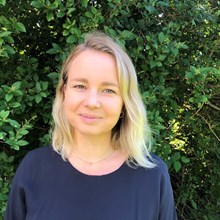
Matilda went to India for clinical placement
For Matilda Öreberg, who studied to become a nurse, it was an obvious choice to go for a CIM. She wanted to cultivate her interest in global health and also be able to present her acquired international experience to future employers.
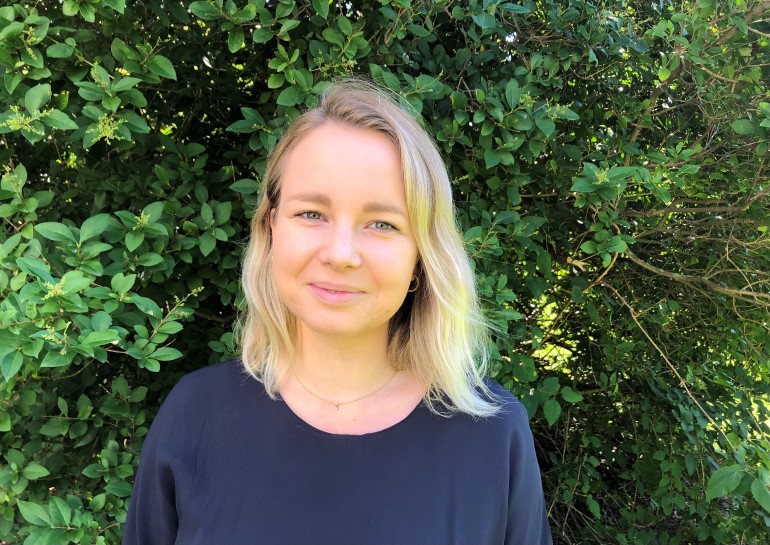
Matilda went to India for clinical placement
For Matilda Öreberg, who studied to become a nurse, it was an obvious choice to go for a CIM. She wanted to cultivate her interest in global health and also be able to present her acquired international experience to future employers.
– The international profile was one main reason for me to choose Malmö University, so it was obvious to me that I should aim for a CIM as well. I wanted to take the chance to go abroad during my clinical placements and I also wanted to continue to cultivate my interest in global health. The opportunity to gather my knowledge, experiences and commitments in a CIM was valuable to me, as it is a convenient way to show my experience to future employers.
– CIM gives the opportunity to choose between activities that takes a few hours of your time and bigger projects that lasts for month – both at home and abroad. There's something for anyone interested in internationalization. My first CIM activity was a lecture on medical care at the scene of a catastrophe with Johan von Schreeb, the founder of the Swedish Doctors without borders. This was an activity that I found myself and got accepted as part of my CIM after speaking to my CIM coordinator. The following activity I participated in was a 4-week exchange to southern India during a clinical placement in primary health care. I travelled together with two other nursing students, and together we got a good insight into Indian health care, society and culture. I also got an opportunity to practice my English. In addition, I also made new friends and valuable contacts with Indian nursing students and local faculty members as well as fellow exchange students from around the world.
– Due to the corona pandemic, I wasn’t able to fulfill my plans to do my bachelor’s thesis as a Minor Field Study in Ethiopia. Nor was I able to go to Slovenia for another exchange clinical placement during the last semester. Instead, I participated in a digital exchange project with nursing students from Hong Kong and Australia. We worked together during a couple of weeks with a patient case, and I got insights in how my international nurse colleagues deal with patient-related matters. I also learnt more about similarities and differences between our societies and health care systems.
– Altogether, I believe that the CIM activities has broadened my perspectives on the world in general and on global health in particular. I have started to build a valuable international network of contacts and gotten a chance to practice my English skills. To participate in CIM, which sometimes is challenging and take both courage and patience, makes you grow on a personal level. I would recommend giving CIM a chance to anyone interested with an aim for an international career or just an interest in global matters. It is fun!
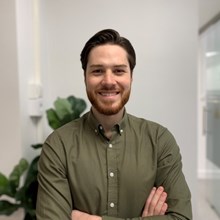
Mustafa was the first dentistry student with CIM
Mustafa Aljamal was in his final year of dental education when CIM became available at the Faculty of Odontology. He has now graduated and works at Wasa Dental Clinic and Avesta Dental Care. Through CIM, Mustafa gained new perspectives and experiences that benefited him in his work as a dentist.

Mustafa was the first dentistry student with CIM
Mustafa Aljamal was in his final year of dental education when CIM became available at the Faculty of Odontology. He has now graduated and works at Wasa Dental Clinic and Avesta Dental Care. Through CIM, Mustafa gained new perspectives and experiences that benefited him in his work as a dentist.
– I became interested in internationalisation early on during my studies. When I heard that the Faculty of Odontology had implemented CIM, I didn't have to think twice about participating. One of the most rewarding events was a five-week intercultural communication course at Shanghai International Studies University (SISU). It was an informative, evidence-based course that I can highly recommend. The main goal was to gain important insights to understand intercultural interactions. Among other things, we based our work on interactions one can have with people from different cultures, such as social dynamics, social standards in cultures, and various phenomena.
– Another activity I participated in was the international Osstell Symposium. The event focused on dental implants and provided CE credits (continuing education credits). In some countries these must be met annually by dentists to maintain their dental license. During the event, I had the opportunity to listen to several world-renowned speakers. I gained insight into current research on the subject and different approaches to the profession than those we are used to in Sweden.
– I thought it was too good to be true when I found out that the 'Buddy Programme' was also a CIM activity. It enables one to have fun while also getting a credit. The programme involves students welcoming new international students to Malmö University. Unfortunately, due to the pandemic, all meetings with the new students were held online, but it was still a fun experience. We met online and talked about student life in different countries, as well as traditions, cooking, and more. I also created new friendships with our international students from the Student Union Board.
– Participating in CIM can benefit both your personal and working life. International events provide good networking opportunities that can lead to new opportunities. For a dental student, they can offer new perspectives on approaches, technologies, and treatment options in dentistry, which in turn leads to professional development. My international experiences have enabled me to develop my communication skills with international students and people from different cultural backgrounds. Being interculturally competent leads to more individualised and patient-centered dental care.
– I was surprised when I learned I was the first student from the Faculty of Odontology to get my CIM. I hope my participation will inspire more students from the Faculty of Odontology to apply.
